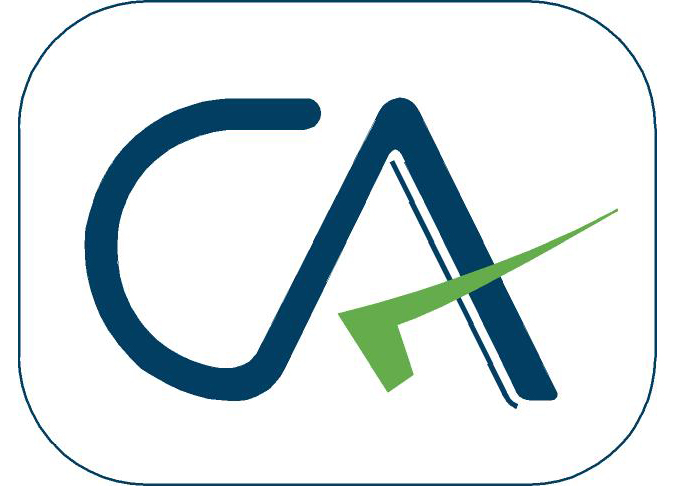
The process of transferring tangible securities and shares into digital or electronic form is known as dematerialization of shares. The concept of dematerialization of shares is now only applicable to publicly traded firms where shares are held in the shareholder’s Demat account and no physical copy of the shares is needed.
The main goal of dematerialization is to streamline the process of issuing, purchasing, selling, and other share transactions without requiring the actual transfer of shares or the filing of a form with the relevant regulatory body (RoC) for each transaction.
Through a second amendment rule dated October 27, 2023, the Ministry of Corporate Affairs (MCA) has made a significant change to the Company (Prospectus and allotment of securities) Rules, 2014. With the exception of small businesses, all private corporations must convert their securities into demat form within eighteen months of the financial year’s conclusion on March 31, 2023.
This blog goes into great detail regarding the dematerialization of shares, including who must convert, how to convert, when to convert, and other related topics.
Which organisation must dematerialize its shares?
Every private firm must convert its securities into dematerialized form in accordance with the recently added Rule 9B of the firm (Prospectus and allotment of securities) Rules, 2014, with the exception of:
- Small Companies
- Government-Originated Enterprise
Furthermore, on the last day of the fiscal year that ends on or after March 31, 2023, it will be necessary to verify whether the company is classified as a “small company” or not.
Section 2(85) of the Companies Act, 2013 defines a small business as any company that is not a public company and has the following characteristics:
- A fully paid-up share capital of up to INR 4 crores;
and
- Revenue not to exceed 40 crores Indian rupees.
This clause does not, however, apply to:
- a subsidiary or a holding company,
- A business that is listed under section 8
- a business or body corporate subject to any unique Act
Which shares must be removed from circulation
Private enterprises that meet the applicable requirements must dematerialize all of their securities and only issue new securities in dematerialized form.
What is the schedule for shares to become dematerialized?
According to Rule 9B(2), a private company that falls under this requirement—that is, one that is not a small company as of the last day of a fiscal year that ends on or after March 31, 2023—must dematerialize its securities within 18 months of the fiscal year’s conclusion.
For instance.
- Situation as of March 31, 2023: Not a small business
- The deadline for dematerializing shares is September 30, 2024.
As of March 31, 2023, the status is Small Company.
Situation as of March 31, 2024: Not a Small business
The deadline for dematerializing shares is September 30, 2025. i.e. in other words as and when the company falls out of the definition of the small company, then the company have to dematerialize the shares and its security by 18 months from the end of the fiscal year.

Other requirements
- Any private company that must dematerialize its securities must wait until all of its promoters, directors, and key managerial personnel have dematerialized their entire holdings in accordance with the Depositories Act of 1996 before offering any kind of security, buyback, bonus share, or rights issue.
- Additionally, a shareholder of a private company that must dematerialize its securities may transfer shares, subscribe for any issue, including bonus shares or right issues (via a private placement or otherwise). However, in order to do so, the shareholder must comply with the dematerialization requirements and guarantee that all of his securities are held in a dematerialized form prior to the subscription or transfer.
The process of dematerializing shares
The following procedure for the dematerialization of securities must be followed by the company:
Enabling clauses in the Article of Association (AOA): A company’s AOA grants the authority to dematerialize its shares. Thus, in the event that AOA is devoid of Demateralization-related requirements, the corporation must update AOA accordingly.
Convey of Board Meeting: In order to authorise the dematerialization of shares and designate a designated individual to oversee the entire procedure, the firm must call a board meeting.
Making a Demat Account selection and choosing a Depository Participant (DP):
When securities are dematerialized, the shares are kept in an electronic account that the Depository keeps up to date. When it comes to holding and easily transacting in securities online, Demat Accounts are just as good as bank accounts. A depository participant (DP) serves as a go-between for a depositor and an investment. Participants in the depository assist with opening a demat account with the depository and handle the whole dematerialization procedure.
Central Depository Services (India) Limited (“CDSL”) and National Securities Depository Limited (“NSDL”) have lists of registered DPs available on their websites.
Designation of Registrar and Share Transfer Agent (RTA): The Securities and Exchange Board of India (SEBI) has Registrar and Transfer Agents (RTAs) on file. They assist businesses that have issued shares to the public with share registry upkeep and share transfer operations. The RTA will be chosen by the company from the list of RTAs that have registered.
Implement the Tripartite Agreement: The company will sign a tripartite contract with the RTA, the Depository, and the company. The extent of services that each party is expected to provide will be specified in this agreement.
Activate the ISIN, or International Securities Identification Number: A security is identified by its International Securities Identification Number (ISIN), a distinct 12-digit code. The trading, clearing, and settlement of securities transactions are made easier with the use of ISINs, particularly when doing so internationally.
The International Securities Identification Number (“ISIN”), a unique code for each asset, will be issued by the depository following verification and filing of all paperwork with the DP and RTA. These are crucial for the precise and effective tracking of securities globally.
Inform and Help the Shareholder: After opening a Demat account, the company notifies the shareholders of the process of dematerialization and will also provide them with information about it. Such a corporation ought to help shareholders open Demat accounts with DPs by offering guidance and support.
Process of a shareholder’s dematerialization of shares
The stockholders have already received tangible shares from the company. It is now necessary to convert these shares to dematerialized form. The following procedure must be followed by the shareholders:
The Depository Participant (DP) Selection Process
Like the business, the shareholders must register a Demat account in order to store their shares. As a result, the shareholder must first choose a depository participant who can assist with demat account opening. A few well-known instances of depositary participants are Groww, HDFC Securities, Zerodha, and so on.
Creating a Demat Account
After that, the shareholder must open his Demat account by submitting Know Your Customer (KYC) paperwork and any further paperwork that might be needed to the Depository participant. Nowadays, opening a Demat account is a simple process that takes two to three days to complete.
Physically submitting a copy of the share certificate and submitting a request for demateralization
The shareholder must provide the Depository Participant with a physical copy of his share certificate, the Dematerialization Request Form (DRF), and any additional supporting documentation.
Validation of DRF
The data presented in the DRF and the supporting documentation must be verified by the DP. The DP will transmit the dematerialization request to the appropriate depository (NSDL or CDSL in India) after the verification is finished.
Verification and Update of Records
The physical shares are cancelled and the equivalent electronic shares are credited to the shareholder’s account once the depository has verified and approved the dematerialization request.
Conclusion
Dematerialization of unlisted firms’ securities is a positive step that will simplify the issuing and transfer of shares by doing away with the need to maintain a physical copy of the share certificate. It might, however, be an expensive endeavour for the business but overtime smoothens the transaction the share issue, transfer and other matters, moreover providing increased transparency and visibility.
